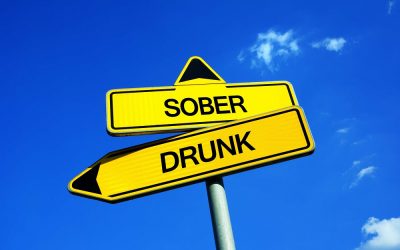If you have been drinking heavily and notice that you are bruising or bleeding more easily, it may be a sign that you have thinned your blood. The amount of alcohol that is needed to thin the is alcohol a blood thinner blood varies from person to person. Generally, it takes more than one drink per day to significantly thin the blood.
Understanding How Much Does Alcohol Rehab Cost Without Insurance
If you’re healthy, this short-term effect rarely poses a significant bleeding risk, nor does it robustly protect you from cardiovascular events. Therefore, a person should not drink alcohol instead of taking blood thinning medications as a doctor has prescribed. Therefore, a person should speak with a healthcare professional about whether https://forexneuralnetwork.com/index.php/2022/11/16/can-alcohol-withdrawal-cause-insomnia/ it is safe for them to drink alcohol while taking medications. Blood clotting is essential to prevent blood loss when someone is injured or wounded.

Risks and Benefits
Alcohol Addiction Center is a free, web-based resource helping to bring education and information to the world of alcohol addiction. It is our hope that with increased awareness, more and more people will get help with their alcohol problems. The second class is an anti-platelet medication, which keeps platelets from sticking together to create a clot. They stop excessive bleeding should you be hurt; they work together with your white blood cells and your red blood cells. All three components are carried through your body by liquid plasma (a clear fluid).
- For patients with cardiac problems in particular, it is important not to depend entirely on the consumption of alcohol for treatment of clot formation.
- This is known as an anticoagulant which is basically a medicine that targets the clotting of your blood.
- If you or a loved one suspects you are suffering from alcohol use disorder, call and speak with an alcohol addiction treatment center as soon as possible.
- However, alcohol’s impact on coagulation and its anticoagulant properties are subjects of study and interest.
- Instead, it affects the blood’s ability to clot effectively, minimizing the risk of harmful clots.
How do Blood Thinners Work?

If your doctor has prescribed one of these medicines, it’s because you have heart disease or another condition that increases your risk for clots. If you are at an increased risk of developing blood clots, your doctor may recommend that you take a blood thinner. This is a medication that helps to thin the blood and reduce the risk of blood clots. Your doctor will be able to advise you on the best course of treatment to reduce your risk of developing blood clots. Because alcohol can reduce the blood’s clotting mechanisms, consuming alcohol can increase the risk of bleeding. This means that something as simple as bumping into a table can result in serious bruising, or a laceration can result in a dangerous amount of blood loss.
It is important to understand the effects of alcohol on your blood and to drink in moderation. If you are concerned about the effects of alcohol on your blood, it is important to talk to your doctor. The U.S. Department of Agriculture recommends that men drink no more than two drinks per day and women drink no more than one drink per day. It is also important to stay hydrated when drinking alcohol, as this can help to reduce the risk of developing blood clots.
While alcohol consumption can lead to temporary changes in blood viscosity, it does not act as an anticoagulant like medications such as aspirin or warfarin. The effects of alcohol on blood clotting are more complex and can vary depending on various factors, including the amount of alcohol consumed and individual health conditions. Platelets are small blood cells responsible for clotting and preventing excessive bleeding.
- No, the type of alcohol you drink doesn’t make a significant difference in its blood-thinning effects.
- Additionally, alcohol abuse can also impair platelet function, which plays a crucial role in blood clot formation and could further contribute to bleeding risks.
- Moderate amounts of alcohol can prevent clotting, which can thin the blood enough so that blood can get around fatty deposits in the blood vessels.
Is alcohol really a blood thinner and how does it affect blood clotting?

Not only that, some people experience an increase even after one or two drinks because their body alcoholism processes alcohol differently. There are too many variables to make a blanket statement that alcohol is good for your blood pressure. However, that does not mean that drinking is healthy, nor should you use alcohol to manage your blood pressure. There are safer and more reliable ways to manage high blood pressure than regular drinking.
Dangers of Mixing Alcohol and Blood Thinners
However, when the serving was increased to twice the original amount, blood-thinning effects were observed. Alcohol can also reduce the production of antibodies, which help to fight off infections. This can lead to a weakened immune system and an increased risk of infection. Heavy drinking can also increase the risk of developing blood clots, which can cause serious health problems, such as stroke and heart attack.
Of course, if you drink alcohol, drinking in moderation is always recommended. Over-imbibing can affect how quickly your blood clots and can increase your chances of falling. Even a simple fall can give you a nasty bruise or could even cause internal bleeding. However, it’s never a good idea to use alcohol in place of your prescription blood thinners.